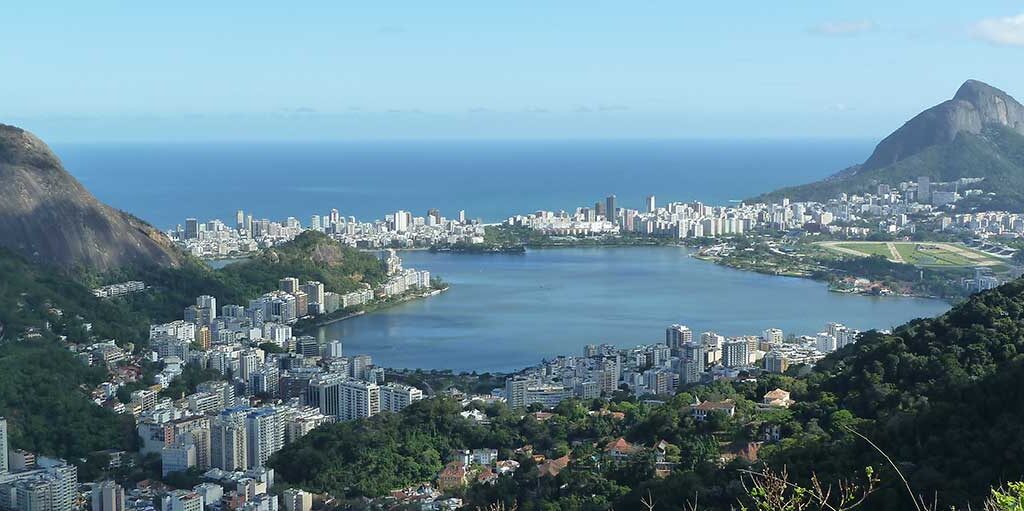What is the official language of Rio de Janeiro?

The Linguistic Landscape of Rio de Janeiro: A Closer Look at the Official Language
When you think of Rio de Janeiro, what comes to mind? Perhaps it’s the iconic Christ the Redeemer statue, the vibrant Carnival festival, or the golden sands of Copacabana beach. But there’s another aspect that’s equally integral to the city’s identity – its official language. The official language of Rio de Janeiro is Portuguese.
Portuguese: The Heartbeat of Rio
Why Portuguese? The answer lies in the city’s historical roots. Brazil, where Rio de Janeiro is located, was once a colony of Portugal. The legacy of this colonial past is evident today, as Portuguese is the primary language spoken throughout Brazil, including in Rio de Janeiro.
It’s not just any Portuguese, though. The variant spoken in Rio de Janeiro, often referred to as Brazilian Portuguese, has a distinct accent and vocabulary that sets it apart from European Portuguese. It’s a reflection of the city’s unique cultural and social fabric, blending influences from indigenous, African, and European cultures.
Language as a Cultural Bridge in Rio
In Rio de Janeiro, language is more than a means of communication. It’s a cultural bridge that connects people and creates shared experiences. If you’ve ever been to a football match at Maracanã Stadium, you’ll know what I mean. The chants and cheers in Portuguese create an atmosphere that’s electrifying, almost magical. It’s a testament to the power of language to forge connections and evoke emotions.
English Education in Rio
English education in Rio de Janeiro is prioritized, with the language being taught in schools from a young age. There are also many language schools and private tutors available for those wishing to improve their English fluency. As a result, younger generations are becoming increasingly bilingual, which is helping to bridge the language gap between locals and tourists.
English in Tourism
In the tourism industry, English is commonly used in hotels, restaurants, and tourist attractions. Tour guides, hotel staff, and restaurant employees often have a working knowledge of English to cater to the influx of tourists from around the world.
In conclusion, Portuguese is the official language of Rio de Janeiro, a reflection of the city’s historical ties with Portugal and its unique cultural identity. Whether you’re a tourist, an expat, or a language enthusiast, understanding the role of language in Rio de Janeiro is key to unlocking the city’s rich cultural heritage and dynamic social life.
Does Brazil have 2 official languages?
No, Brazil only has one official language, which is Portuguese. However, many Brazilians speak English and Spanish too. There are also over 200 indigenous languages spoken in various regions, but Portuguese is the language used in schools, for official purposes, and widely spoken by the Brazilian population.
Is English widely spoken in Rio?
English is not widely spoken in Rio, with fluent speakers making up a small percentage of the population. However, in tourist areas and major hotels, you’ll find more English speakers. Learning a few basic phrases in Portuguese can enhance your experience in Rio, as locals appreciate when visitors make an effort to speak their language.
How do you say hello in Rio?
In Rio, you would say “Olá” to greet someone in Portuguese. Another informal greeting widely used in Rio is ‘Oi’. For a more friendly approach, ‘Oi, tudo bem?’ which translates to ‘Hi, how are you?’ is common. Learning these local phrases can enrich your cultural experience in Rio de Janeiro.
How do you say thank you in Brazil?
To express gratitude in Brazil, you say “Obrigado” if you’re male, and “Obrigada” if you’re female. These are the Portuguese expressions for ‘thank you’. Adding ‘muito’ before ‘obrigado/a’ intensifies the thanks to ‘thank you very much’. Using local phrases in Brazil can show respect and appreciation for their culture.
What is a very common greeting in Brazil?
A frequent greeting in Brazil is ‘Bom dia’, which translates to ‘Good morning’ in English. This Portuguese phrase is commonly used in the morning to greet people. Incorporating this local greeting in your communication can help build rapport with Brazilians.